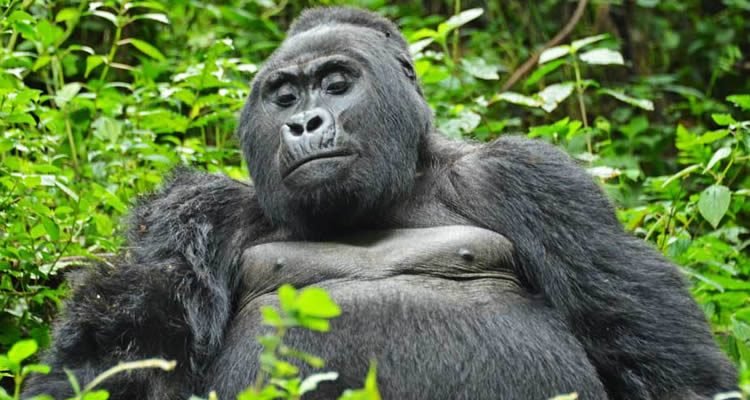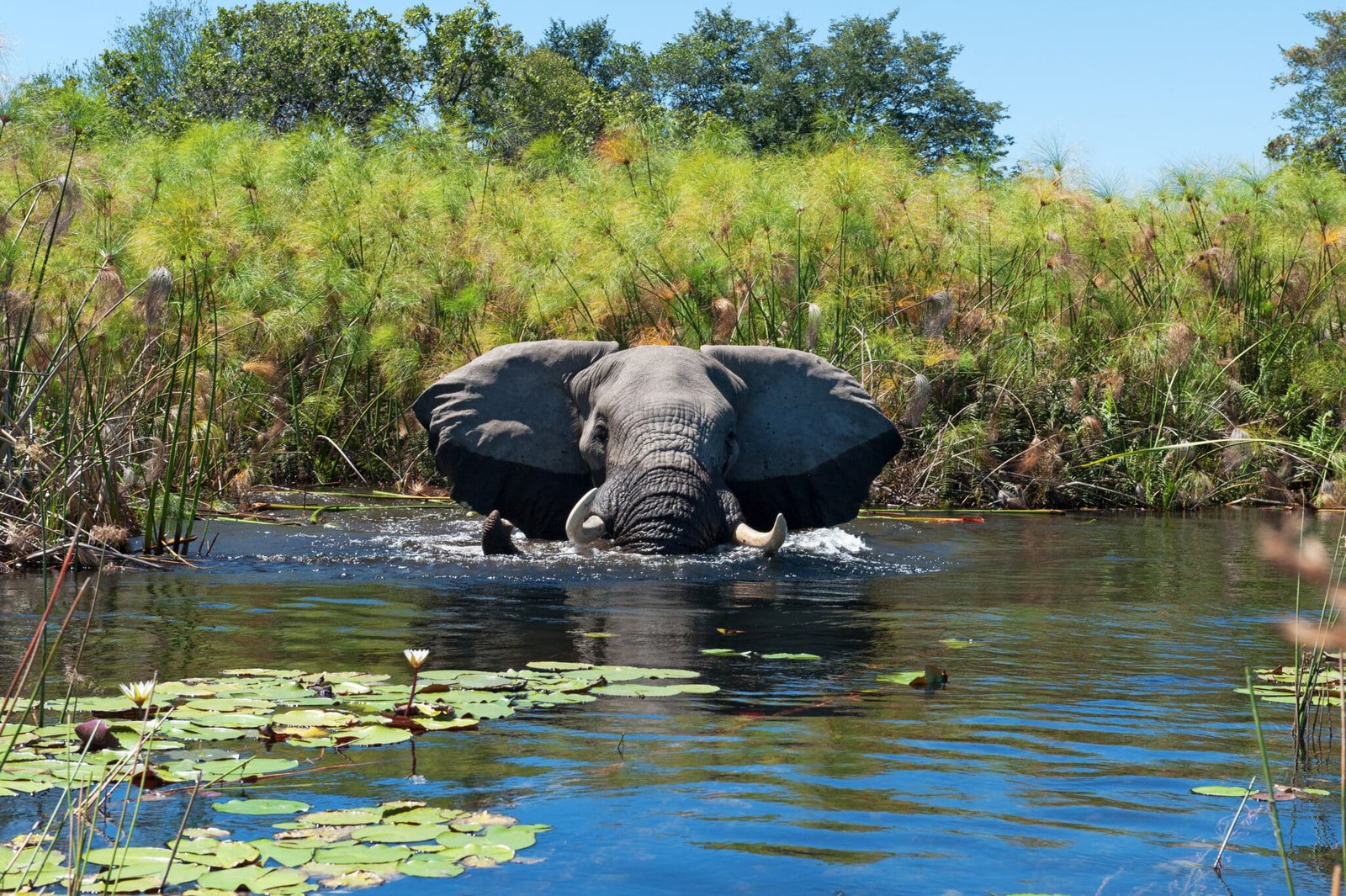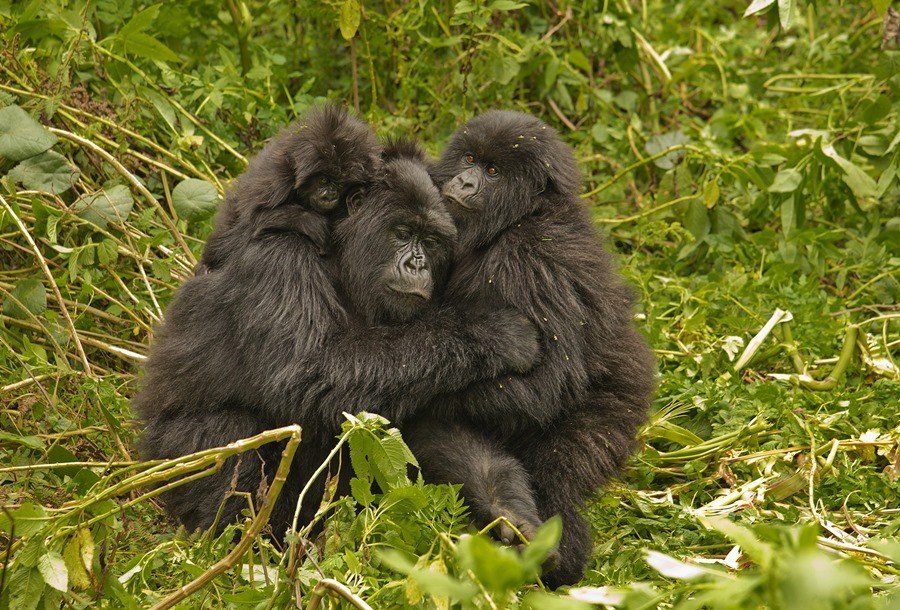Conservation Volunteers in Bwindi National Park
Bwindi Impenetrable National Park is a UNESCO World Heritage Site located in southwestern Uganda. It is renowned for its exceptional biodiversity and, most notably, for being home to approximately half of the world’s remaining mountain gorilla population. Conservation volunteers play a crucial role in supporting the protection and preservation of this unique and endangered ecosystem.
- Tracking Gorilla Families: Gorilla families roam freely within the dense forest of Bwindi National Park, and their movements can be challenging to predict. Volunteers, accompanied by experienced guides and researchers, set out on treks to locate and track specific gorilla families. This involves following trails, navigating dense vegetation, and sometimes climbing steep terrain.
- Behaviour Observation: Once a gorilla family is located, volunteers carefully observe and record their behaviour. This includes interactions between members of the family, feeding habits, grooming, play, and any unique behaviours displayed by individual gorillas. Understanding gorilla behaviour is crucial for comprehending their social structure and ensuring their well-being in the wild.
- Health Monitoring: Volunteers also assist in monitoring the health of gorilla groups. They may help researchers identify signs of illness or injury, as well as keep track of the overall health and well-being of each individual in the family. Regular health assessments are essential for early detection and intervention in case of any health issues.
- Habitat Use and Conservation: Volunteers contribute to data collection on gorilla habitat use patterns. By understanding where gorillas prefer to feed, rest, and build nests, conservationists can implement measures to protect these critical areas and ensure that gorillas have access to sufficient food resources.
- Data Collection and Analysis: Throughout their monitoring activities, volunteers collect a vast amount of data, including behavioural observations, health records, and habitat use information. They assist researchers in organizing and analysing this data, which forms the basis for scientific studies and conservation strategies.
- Community Engagement: Volunteering in gorilla monitoring and research often involves interaction with local communities. Volunteers may engage in educational programs and sensitization efforts to raise awareness about the importance of gorilla conservation and the benefits of preserving their habitat.
- Tourist Education: In popular tourist destinations in Uganda like Bwindi National Park, volunteers may also play a role in educating tourists about responsible gorilla trekking practices and the significance of minimizing human impact on the gorilla habitats.
- Educational Programs: Volunteers work with local schools and community centres to conduct educational programs about gorilla conservation. They may create presentations, workshops, and interactive activities to teach children and adults about the importance of protecting gorillas, their habitats, and the overall biodiversity of the park. These educational efforts help raise awareness and instil a sense of pride and responsibility in the community members.
- Sensitization and Awareness Campaigns: Volunteers participate in sensitization efforts aimed at informing the local population about the potential impact of their actions on the gorilla population. This includes discussing the consequences of poaching, habitat destruction, and other activities that can negatively affect gorillas. The goal is to foster a better understanding of the importance of coexisting with wildlife and the need for sustainable practices.
- Livelihood Support: Many local communities around Bwindi National Park depend on natural resources for their livelihoods, such as agriculture and collecting non-timber forest products. Volunteers may work with community members to explore sustainable livelihood options that do not harm the gorillas or their habitats. This can include supporting eco-friendly agricultural practices or providing training in alternative income-generating activities.
- Collaborative Conservation Initiatives: Volunteers often act as intermediaries between conservation organizations and the local communities. They facilitate dialogue and cooperation to identify ways the communities can actively participate in and benefit from conservation efforts. Engaging the community in decision-making processes fosters a sense of ownership and pride in protecting their natural heritage.
- Cultural Exchange: Volunteers have the opportunity to learn about the local culture and traditions while sharing their own experiences with the community members. This cultural exchange helps build mutual respect and understanding, strengthening the bond between the volunteers and the community.
- Addressing Human-Wildlife Conflict: In some cases, gorillas may venture outside the protected areas and come into contact with human settlements, leading to conflicts. Volunteers may help develop strategies to minimize these conflicts, such as building better fencing, implementing early warning systems, or creating alternative food sources for wildlife.



